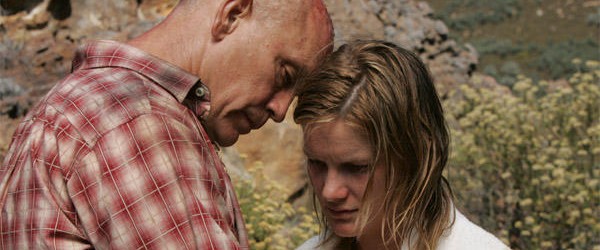
No Country For Old Men: J.M. Coetzee’s ‘Disgrace’
Books, ReviewsSouth Africa after apartheid is no country for old men in J.M. Coetzee’s “Disgrace”
Some scholars believe that human speech developed primarily to assuage our collective fear of death. Or, as professor David Lurie puts it in J.M. Coetzee’s riveting novel “Disgrace“: “the origins of speech lie in song, and the origins of song in the need to fill out with sound the overlarge and rather empty human soul.”

Professor David Lurie’s soul is indeed empty. A middling poetry professor in Cape Town, South Africa, Lurie is filled with desire but lacking in passion, the key ingredient to unlocking the great works he explicates to his young, glassy-eyed students. Twice divorced, fifty-two years old, and estranged from his daughter Lucy, Lurie “has, to his mind, solved the problem of sex rather well.” But after being abandoned by his favorite escort, Lurie seduces a young student of his, and the not-so-consensual sex between them becomes a big problem for the teacher.
Lurie is fired from his post and retreats to his daughter Lucy’s smallholding in the South African countryside. Lucy is an old soul, a gentle and understanding spirit who trains and kennels dogs alongside neighbors who have, until very recently, been subjected to decades of dehumanizing treatment under apartheid. Then, in a shocking act of violence, three men invade Lucy’s home, gang rape her, and set her father on fire with lighter fluid.
Though the physical wounds heal quickly, both father and daughter spend the remainder of this novel wading through the emotional aftermath of the attack. In spare and surprisingly non-political prose, Coetzee explores the double-edged sword that is power. Lurie’s near-rape of the student in Cape Town, where he is a powerful but apathetic teacher, could be an allegory of South Africa under apartheid. But out in the post-apartheid countryside the dynamics have been reversed, and it is his daughter who must atone for the older man’s sins.
This is a difficult, and wonderfully-constructed story – deceptively easy to read, every sentence weighted with some double meaning. Coetzee wisely skirts any overtly political analysis of his homeland. He is more concerned with the power of language to make sense of – and justify, and enable, and hide, and wonder at, and atone for – the disgraceful acts of human history. The written word can be used to codify our worst natures, as was done under apartheid.
Or it can serve as a warning, a judgment, and an example to future generations:
There is no way in which he can evade the poem …
‘So, what kind of creature is this Lucifer?’
… like a sleeper summoned to life, the boy responds. ‘He does what he feels like. He doesn’t care if it’s good or bad. He just does it.’
‘Exactly. Good or bad, he just does it. He doesn’t act on principle but on impulse, and the source of his impulses is dark to him. Read a few lines further: “His madness was not of the head, but heart.” A mad heart. What is a mad heart?’
He is asking too much …
‘Never mind. Note that we are not asked to condemn this being with the mad heart, this being with whom there is something constitutionally wrong. On the contrary, we are invited to understand and sympathize. But there is a limit to sympathy. For though he lives among us, he is not one of us. He is exactly what he calls himself: a thing, this is, a monster. Finally, Byron will suggest, it will not be possible to love him, not in the deeper, more human sense of the word. He will be condemned to solitude.’
Lurie is unable to evade the judgment inherent in Byron’s poem. His lecture on Lucifer brushes too closely against the hem of his own irrational nature, foreshadowing the lonely hermit he will become.
Coetzee does have his flawed and aging antihero develop a stunted sort of empathy in the later stages of the book. We are asked to feel sorry for Lurie in his new calling – euthanizing sick and abandoned dogs in the South African countryside. But it will not be possible for the reader to love him.
There is a limit, after all, to sympathy.























[…] review was originally published at Zouch Magazine) This review is one in a series for what I’m calling the The DIY MFA in Creative […]